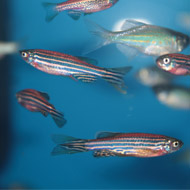Zebrafish study reveals insights into spinal cord injuries

The immune system plays a key role in helping zebrafish nerve cells to regenerate after injury.
New research into how zebrafish repair their damaged nerve connections could help in the creation of treatments for people with spinal cord injuries.
Scientists at the University of Edinburgh found that the immune system plays a key role in helping zebrafish nerve cells to regenerate after injury. It is hoped the discovery could eventually help people with spinal cord injuries regain control over their movement.
In the study, researchers found that large immune cells, known as macrophages, are vital for fish to repair damaged connections. Whilst these cells normally help the body with of infections, they also have a vital role to play in wound healing.
The team found that macrophages produce key molecules that deepen inflammation at the site of the spinal cord injury, enabling nerve cells to bridge the gap and repair lost connections. Researchers say the next step will be to ascertain how these molecules function in human beings.
Researchers at the University’s Centre for Discovery Brain Sciences have established a system to examine the complex interactions between immune cells at the site of spinal injury and how they contribute to the repair of damaged nerve connections in zebrafish.
“Zebrafish are interesting to us because they can regain full swimming ability after spinal cord injury,” said Professor Catherina Becker, of the University of Edinburgh’s Centre for Discovery Brain Sciences. “Our research is focused on understanding the factors involved in this process so that we can look for potential ways of developing treatments for people.”
The study was published in Nature Communications and funded by the Biotechnology and Biological Sciences Research Council.



 The veterinary mental health charity Vetlife is inviting the veterinary community to join it for a sponsored cold-water dip.
The veterinary mental health charity Vetlife is inviting the veterinary community to join it for a sponsored cold-water dip.